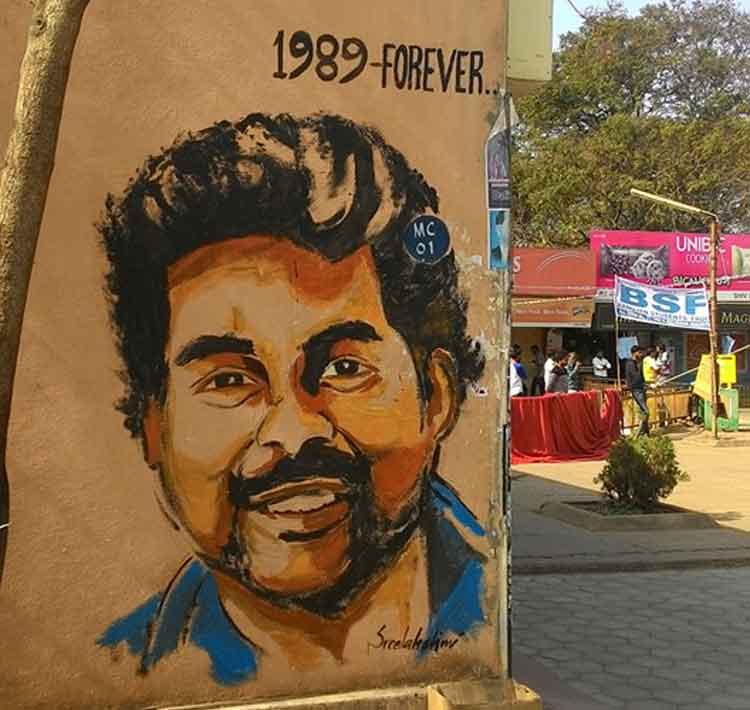Can A ‘Nationalist’ Reading Of ‘Facts’ Bring Justice To Rohit Vemula?
By Dillip Kumar Dash
22 January, 2016
Countercurrents.org

Since the death of Rohit Vemula at University of Hyderabad, the ABVP, BJP and the RSS spokespersons have been harping mostly on two lines of defense. One of them is use of the word ‘dalit’ before his name. They even go to the extent of asking if a Brahmin would have died whether his caste identity would have been used. Two, suicide note doesn’t accuse anyone and actions taken by the University Administration and MHRD are factually consistent with the legal procedures. Even there is a reasoning on these two lines in the press conference of the Honorable Minister. She categorically used the phrase like ‘death of a child’ and suggested not to ‘ignite passion in the name of a particular caste’. She also emphasized that procedures have only been followed and further inquiry will bring out any discrepancy in it, if occurred. These two lines of argument raises a question, whether an indifference to social context enable or restrict a sensible reading of facts and justice thereafter.
In the whole set of defense it is often argued that why in twenty-first century we still refer to feudal categories like caste. A friend of mine ironically asked me whether ‘dalit’ is the name or surname of the victim. To argue like this has often been identified as modern, progressive and urban. Caste like things are assumed to be or might be there in village-India as urban-India is an epitome of development. It is not a coincidence that same people often make statements that it is the reservation policy that contributes to the continuation of caste, and hence, such a policy should not contaminate private sectors. It is an attempt to understand humans as isolated units. In other words, it reflects a mentality that reduces human beings to a herd of individuals without any social content to it. This sort of liberalism is banal and bereft of an understanding about social diversity and its multiple possibilities. Consequently, social identity and contextual location of that identity in relation to others becomes irrelevant. Such an approach is devoid of history and therefore limits analysis. It restricts any narrative and ends story telling.
Reductionism is also reflected in the institutional reading of available facts. The very immediate evidence is the suicide note. Of course, it does not have direct mention of any names to be called as guilty. But, certainly, it does have a mention of the conditions that led to the mishap. The question is whether our institutional apparatus is equipped with appropriate tools to read them. How do we reason through the poignancy of the letter? How do we reflect on the poetics of his lines? Do we need more sensitive and empathetic tools that allows a more contextual analysis? Does history of the community he belonged to count? Does the history of the region, the campus and the very organization count? Do we have tools to judge emotions, read dreams or focus on the emptiness, he revealed?
The justification that everybody from the University administration to MHRD have acted within the given legal framework is further reduction to hide problematic truths. It might be a possible fact that everyone has followed rules. But how do we read into the presence of subjective values within objective ethics? In other words, whether objectification will allow an examination into individual prejudices or we need to move beyond the conformity to standardization.
Both homogenization and standardization are linked to nationalist understanding. However, nationalism has two sides just like a coin. One is the effort to unite through projection of a singular political entity. Selection of cultural components, different kinds of symbolism like a flag and so on, often from the dominant or/and majority sections, contribute to that unification. It is followed by formation of nation-state and its laws. On the other side of nationalism, the selective standardization produces a unitary vision of masses. Nation-state keeps a blind eye to multiple forms of diversity within and among communities. Often majoritarian characters get normalized and the rest looks different and misfit. It becomes a process of creating ‘others’ within. Resistance to this process starts looking like anti-national or not so patriotic to the mainstream. Disagreements look contentious. State apparatuses become atrocious in their conformity to standardized norms and legalities.
A standardized approach allows favorable selection of some facts over others and a selective reading out of them too. A particular sentence that holds nobody guilty has been chosen for explanation rather than the thrust of the whole suicide note. Even though the content of the letter has a clear contextualization, available standardized means cannot prove it. Then, only the suicide letter is chosen by the Honorable Minister in spite of availability of a one month earlier letter, which had a clear indication of his growing frustration over a series of experience, as that was not certified by the local police. Even the context of the particular incident is sidelined by putting it on par with earlier suicides during previous Government and declaring it as a law and order problem. It not only attempts to normalize the specificity of the current one but also opens space for shift of responsibility to the previous office bearers of nation. Again, on the one hand there is a rejection of the use of caste identity and on the other hand, there is a brutal search for the victim’s caste certificate and a quick mention of Union Minister’s OBC status to cover up Government’s insensitivity. Such indifference to caste identity of the victim sounds exclusionary, not the claim of caste by the student movement.
The reduction of human beings into homogenized entities and facts into interpretable standardisation in the nationalist framework, is, in fact, not progressive. It can affect any process of justice.
Dillip Kumar Dash, Research Scholar, Department of Sociology, University of Hyderabad

